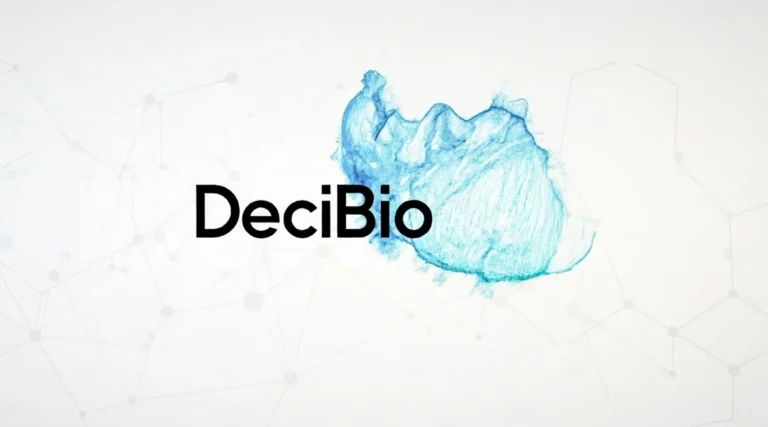
Cascade Bio Secures $6 Million to Advance Biocatalyst Innovation and Transform Biomanufacturing
In a world grappling with climate change, supply chain disruptions, and the growing demand for sustainable manufacturing, biotechnology companies are racing to create alternatives to petrochemical-based production. Cascade Bio, an industrial biotech company headquartered in Denver, Colorado, has emerged as one of the most promising players in this movement. The company recently announced that it has secured $6 million in combined funding to accelerate commercialization of its breakthrough enzyme technology and to help drive a long-awaited shift from petrochemical reliance toward scalable biomanufacturing.
The funding package is a hybrid of venture capital and non-dilutive support, reflecting confidence in both Cascade Bio’s science and its commercial vision. The $6 million includes a $2.8 million seed financing round led by Endurance28, with participation from Stray Dog Capital, 1Flourish Capital, Range Ventures, 10VC, and Amplify Capital. On top of this, Cascade secured $3.2 million in non-dilutive funding from the U.S. National Science Foundation (NSF), awarded under the Advancing Cell-Free Systems Toward Increased Range of Use-Inspired Applications (CFIRE) initiative and through an SBIR Phase II award.
The infusion of capital marks an important milestone in Cascade Bio’s journey to revolutionize enzyme-based manufacturing. With these resources, the company intends to scale its operations, expand customer collaborations, and accelerate delivery of enzymes that dramatically improve cost-effectiveness and performance across industrial applications.
A Paradigm Shift: From Petrochemicals to Biomanufacturing
The chemical economy is one of the largest industries in the world, but it remains heavily dependent on petrochemical feedstocks and processes that are energy-intensive, carbon-heavy, and environmentally damaging. In recent years, biomanufacturing—the use of biological systems to produce chemicals, materials, food ingredients, and pharmaceuticals—has gained attention as a viable alternative. Inspired by how nature operates, biomanufacturing has raised billions in investment globally and is seen as a pillar of the future sustainable economy.
Yet despite the hype and potential, biomanufacturing has been slow to scale. The reasons are multifaceted: reliance on living microbial systems, high production costs, complex fermentation infrastructure, and fragile supply chains. Microbes, while powerful, are inherently complex and difficult to optimize for industrial consistency. This has created a bottleneck for widespread adoption, leaving the industry searching for ways to reduce costs, improve reliability, and achieve scale.
Cascade Bio has stepped into this gap with an approach that could help biomanufacturing finally achieve its promise. Instead of focusing on microbes as the production engine, Cascade takes enzymes—the catalysts that drive biological reactions—and optimizes them for industrial use outside of cells. This “cell-free” biomanufacturing model dramatically simplifies processes, reduces complexity, and opens new avenues for cost reduction.
Cascade’s Breakthrough: Extending Enzyme Lifespan and Stability
Enzymes are at the heart of biology. They catalyze reactions with incredible efficiency and specificity, enabling processes that would otherwise require extreme heat, pressure, or harsh chemicals. However, in industrial environments, enzymes are often unstable. They degrade quickly under stress, lose activity within hours or days, and become prohibitively expensive to use at scale.
Cascade Bio has developed a proprietary technology platform—known internally as “Body Armor for Enzymes™”—that addresses this central limitation. Using cost-effective and easily scalable materials, Cascade can stabilize enzymes, extend their lifespan, and make them more robust in harsh industrial conditions.
So far, the company has worked on over 30 different enzymes, achieving 100% success in improving enzyme stability under industrially relevant conditions. The results have been striking: enzymes that would normally lose activity in a matter of hours have remained active for months when treated with Cascade’s stabilization technology.
For industrial partners, this translates into significant cost savings, reduced downtime, and expanded opportunities to adopt biology-based production methods. Already, Cascade has more than 20 paying customers, including some of the world’s largest chemical, pharmaceutical, flavor and fragrance, and food ingredient companies. These early collaborations serve as proof points for the impact Cascade’s technology can deliver across diverse sectors.
Quotes from Leadership and Investors
Cascade Bio’s co-founders, Alex Rosay and James Weltz, bring complementary expertise in chemical engineering, scientific innovation, and commercialization. Drawing on experiences at Zymergen, Stanford University, and the University of Colorado Boulder, the two founders have built Cascade on the lessons learned from both academic and industry frontlines.
“Through our early-stage collaborations, we are already seeing the potential impact of our technology,” said Alex Rosay, CEO of Cascade Bio. “We are seeing enzymes that crash out in hours maintain their activity for months. This order of magnitude improvement in biocatalysis will change the industry by dramatically improving costs and ease-of-use for nature’s catalysts.”
Investors are equally bullish on the company’s trajectory. Jared Campbell, senior partner at Endurance28, emphasized the qualities of the founding team:
Alex and James represent the ideal founding partnership that Endurance28 seeks—they are ‘ambitious rebels’ that combine deep scientific expertise with rapid learning and unwavering commitment to their mission. We’re excited to partner with founders whose technical depth and bold vision will build the platform for cell-free biocatalysis that redefines how the world makes chemicals—faster, cleaner, and more sustainable.”
This vote of confidence from investors underscores the unique value proposition of Cascade Bio’s technology in a crowded field of biotech startups.
Why Cell-Free Biocatalysis Matters
To understand Cascade’s potential, it is helpful to contrast traditional microbial biomanufacturing with cell-free biocatalysis.
- Microbial Biomanufacturing: Relies on living organisms such as yeast or bacteria to produce desired molecules. While microbes can be engineered to produce a wide range of compounds, they come with complexity: they consume energy and resources, require careful control of growth conditions, and can introduce byproducts that complicate purification.
- Cell-Free Biocatalysis: Extracts the enzymes directly from living systems and uses them in controlled, simplified environments. By focusing only on the catalytic machinery, cell-free systems avoid the complexity of managing whole cells. This not only reduces costs but also allows for greater control, reproducibility, and scalability.
Cascade Bio is among the pioneers in making cell-free biocatalysis viable at industrial scale. By ensuring enzymes remain stable and functional outside cells, the company opens the door to large-scale applications that could reshape manufacturing across multiple industries.
Impact Across Industrie
The potential applications of Cascade Bio’s technology are vast. Enzyme-based processes can be used in nearly every sector of the economy. Cascade is already working with companies in:
- Chemicals: Replacing petrochemical-derived processes with enzyme-driven synthesis that reduces carbon footprint and energy consumption.
- Pharmaceuticals: Enabling greener and more efficient production of active pharmaceutical ingredients (APIs).
- Flavors and Fragrances: Offering new pathways to create natural and sustainable molecules without reliance on limited agricultural feedstocks.
- Food Ingredients: Supporting the development of healthier and more sustainable ingredients for the growing plant-based and functional food markets.
These collaborations are more than pilot projects—they represent the early wave of industrial adoption, where companies with global reach are beginning to incorporate Cascade’s enzymes into their processes.
Funding Breakdown: Venture + Non-Dilutive Capital
One of the unique aspects of Cascade Bio’s funding story is its blend of equity investment and non-dilutive grants. The $2.8 million seed round provides venture backing to support growth, while the $3.2 million from the NSF reflects validation from the U.S. government that Cascade’s technology has the potential to drive meaningful societal impact.
The NSF’s CFIRE initiative specifically focuses on advancing cell-free systems, making Cascade Bio’s award both timely and mission-aligned. Meanwhile, the SBIR Phase II grant provides funding to help transition promising research into commercial products. This dual-track funding structure ensures Cascade can maintain scientific rigor while scaling operations in a capital-efficient manner.
Positioning for Growth
With its headquarters in Denver, Colorado, and additional presence in California and New York, Cascade Bio is strategically located to tap into both biotech innovation hubs and major industrial markets. The company is actively expanding its team, building out infrastructure, and deepening customer relationships as it moves from proof-of-concept projects to scaled deployments.
Cascade’s long-term vision is bold: to spearhead a cell-free biomanufacturing revolution that redefines how the world makes chemicals, materials, and ingredients. The combination of strong scientific foundations, early commercial traction, and investor backing positions Cascade as one of the leaders in this emerging field.
About Cascade Bio
Cascade Biocatalysts, Inc., or Cascade Bio, is an industrial biotechnology company committed to advancing enzyme-based processes for a more sustainable future. With its proprietary Body Armor for Enzymes™ technology, Cascade has developed a scalable approach to enzyme stabilization that lowers costs and increases performance across industries. Headquartered in Denver, Cascade is driven by its mission to transform the chemical economy and expand the adoption of biomanufacturing worldwide.
Interested partners can contact Alex Rosay, CEO, at alex@cascadebio.com to learn more.
Cascade Bio’s $6 million funding milestone is not just another investment headline—it represents a critical step forward in the global shift toward sustainable manufacturing. By solving one of the central challenges of industrial biocatalysis—enzyme stability—Cascade is enabling a new era of cell-free biomanufacturing that could reshape industries ranging from chemicals to food to pharmaceuticals.
As the world seeks to decarbonize supply chains and reduce reliance on fossil fuels, solutions like Cascade Bio’s will play a central role. With strong investor backing, government support, and proven technology, the company is well-positioned to become a cornerstone of the biomanufacturing revolution.





